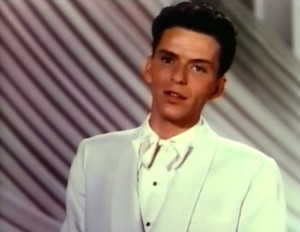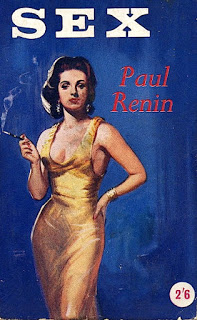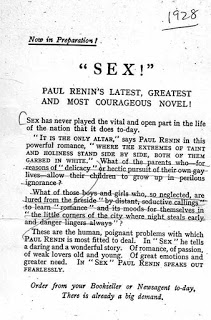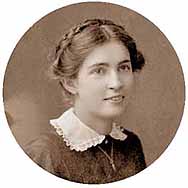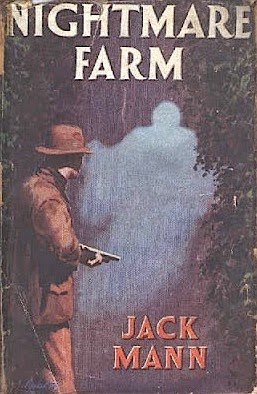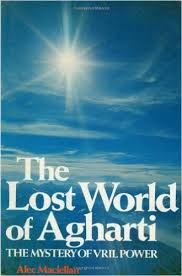 Found in the Peter Haining Archive ( though how it got there is anybody’s guess) is a letter addressed to Alec McClelland, author of The Lost World of the Agharti from someone called John Hanning-Lee.
Found in the Peter Haining Archive ( though how it got there is anybody’s guess) is a letter addressed to Alec McClelland, author of The Lost World of the Agharti from someone called John Hanning-Lee.
Bearing no year date ( but it must be dated after 1982, when The Lost World of Agharti appeared ) it urges McClelland to read Seth Speaks by the American psychic and author Jane Roberts (1929 – 84), who from 1964 received spirit messages from a male being called ‘ Seth’, whose pronouncements were later made the subject of a number of published works by Roberts collectively known as the ‘Seth material’. In his letter Hanning –Lee particularly focuses on the chapter in Seth Speaks devoted to the lost underground civilisation that predated Atlantis. Hanning-Lee describes the inhabitants and their civilisation thus:
‘They had blown up their own civilisation prior to that and the underground existence that followed was, of course, a reincarnational one. They excavated whole cities, by that I mean they excavated extensively so that their cities and communicating passages were entirely beneath the surface. The means of doing this was by means of sound vibrations where certain low notes sounded with power can cause a tunnel to form where there was solid earth. I suppose an analogy would be if you were to manipulate iron filings so that a path was formed through a mass of them placed on a sheet of paper and the paper tapped lightly. These ‘ caves ‘ they formed were, then, far more extensive than the ordinary idea of the word ‘cave’ and ran for miles, Their knowledge of the plates of the Earth’s crust and the science of earthquakes was almost certainly far superior to ours. Continue reading

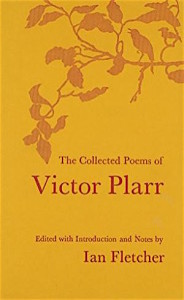
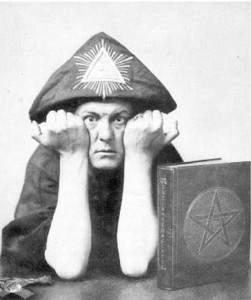

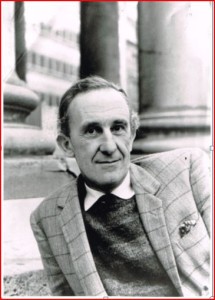 Listing British novelists or poets who were also medics is a fun party game. Going right back to the eighteenth century one can think of Goldsmith and Smollett. From the nineteenth, I suppose Keats can be included, although without a degree in medicine, he can’t be classed as a physician. Thomas Lovell Beddoes is a less well known example, as is Samuel Warren, who ought to be better known, especially as his ground-breaking Passages from the Diary of a late Physician heavily influenced the Bronte sisters. Among the twentieth century poets there are a few, including Dannie Abse and Alex Comfort and I dare say one or two writers studied medicine, but never practised it. I don’t think Somerset Maugham did, apart from a stint in the Red Cross. And then there is Gabriel Fielding (1916 – 86).He certainly practised. In fact he was a GP and a prison doctor based in Maidstone for many years until literary fame allowed him to give up medicine and try his luck in America. With a mother who was a descendant of Henry Fielding, he certainly possessed the literary credentials to succeed, and indeed he did, but not so much in his native land, where he is still little known. The reputation of Alan Gabriel Barnsley (his real name) is well documented in a review dated April 6th 1963 from the Haining Archive. In it, John Horder, himself a doctor and writer, marks the publication of Fielding’s fourth novel, The Birthday King, which had just appeared in the States, with the statement that in America he was acknowledged as ‘ one of our leading novelists, along with Graham Greene, Muriel Spark and Iris Murdoch’. According to Horder, Gabriel’s obsession with ‘the darkness in man ‘ was present from the start. In his debut novel, Brotherly Love (1954), for instance, Fielding’s hero, David Blaydon, who is based on the author’s eldest brother George, gets pushed into the Church, becomes entangled in the lives of various women in his parish and eventually falls ‘a great height from a tree to be found dead by one of his brothers in one of the most horrifying scenes in fiction’.
Listing British novelists or poets who were also medics is a fun party game. Going right back to the eighteenth century one can think of Goldsmith and Smollett. From the nineteenth, I suppose Keats can be included, although without a degree in medicine, he can’t be classed as a physician. Thomas Lovell Beddoes is a less well known example, as is Samuel Warren, who ought to be better known, especially as his ground-breaking Passages from the Diary of a late Physician heavily influenced the Bronte sisters. Among the twentieth century poets there are a few, including Dannie Abse and Alex Comfort and I dare say one or two writers studied medicine, but never practised it. I don’t think Somerset Maugham did, apart from a stint in the Red Cross. And then there is Gabriel Fielding (1916 – 86).He certainly practised. In fact he was a GP and a prison doctor based in Maidstone for many years until literary fame allowed him to give up medicine and try his luck in America. With a mother who was a descendant of Henry Fielding, he certainly possessed the literary credentials to succeed, and indeed he did, but not so much in his native land, where he is still little known. The reputation of Alan Gabriel Barnsley (his real name) is well documented in a review dated April 6th 1963 from the Haining Archive. In it, John Horder, himself a doctor and writer, marks the publication of Fielding’s fourth novel, The Birthday King, which had just appeared in the States, with the statement that in America he was acknowledged as ‘ one of our leading novelists, along with Graham Greene, Muriel Spark and Iris Murdoch’. According to Horder, Gabriel’s obsession with ‘the darkness in man ‘ was present from the start. In his debut novel, Brotherly Love (1954), for instance, Fielding’s hero, David Blaydon, who is based on the author’s eldest brother George, gets pushed into the Church, becomes entangled in the lives of various women in his parish and eventually falls ‘a great height from a tree to be found dead by one of his brothers in one of the most horrifying scenes in fiction’. 